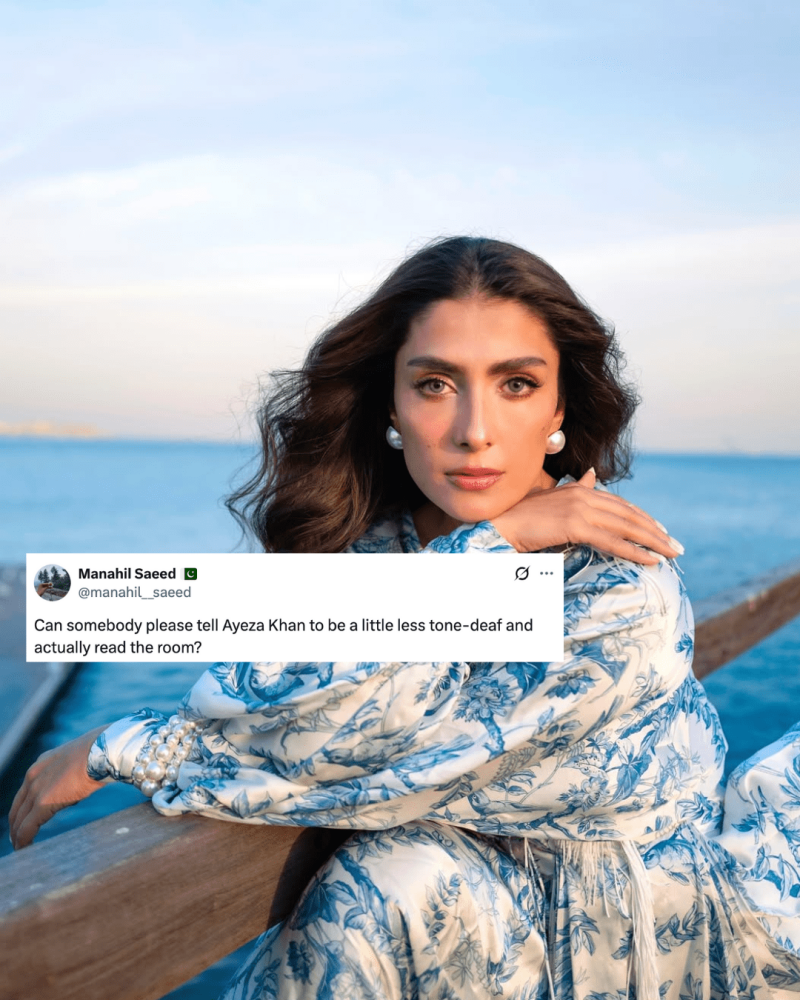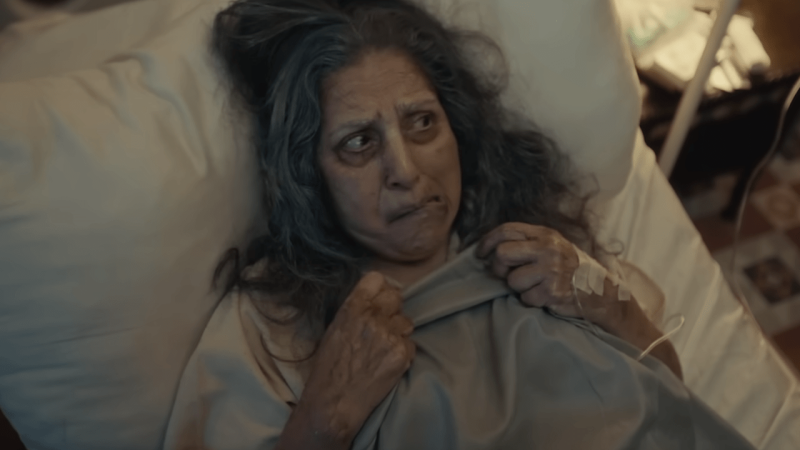‘Stop glorifying abuse’: Everyone’s had enough of toxic dramas in the wake of Sana Yousaf’s murder
Danish Taimoor’s character tying up his on-screen wife in Mann Mast Malang as romantic music plays in the background. Wahaj Ali’s character’s implied marital rape scene in Tere Bin. Faysal Quraishi’s control over his love interest in Bashar Momin. Feroze Khan’s physical violence in the name of love in Aye Musht-e-Khaak.
Recent Pakistani dramas have no shortage of portraying abuse under the guise of romance. This trend not only normalises toxic behaviour but also sends troubling messages about love and relationships to viewers, in a country grappling with a wave of violence against women.
The recent gruesome murder of 17-year-old content creator Sana Yousaf highlights the real-world ramifications of romanticising abusive relationships. Yousaf was gunned down after she repeatedly rejected a man’s advances, according to the Islamabad police. Her only crime was saying no — and for that, a man decided she deserved to die.
What else can one expect in a country where days prior to Yousaf’s murder, Geo Entertainment aired an episode of Mann Mast Malang where Taimoor’s character Kabir ties up his wife’s ankles and wrists to prevent her from leaving him, and asks her to call out “lovingly” if she needed help. Moments later, he tells another character that he doesn’t want his wife to leave because he wants her to live with him as his — all the while, a helpless woman sits upstairs, tied up.
As if society’s enablement wasn’t enough, through our dramas, men are explicitly being taught not to take no for an answer and to use whatever coercive, cruel way possible to ‘win’ their lover’s heart.
The only bleak light here is that people are finally starting to realise the harmful impact of this phenomenon, and after Yousaf’s murder, are condemning these narratives as well as the writers and actors that perpetuate them.
Mawra Hocane said, “Our content still romanticises forced relationships, toxic love, dominating male behaviour… Well, this is the impact. A 17-year-old was killed because a boy thought it was okay to do so when rejected.”
We couldn’t have summed it up better.
Similarly, Sanam Saeed said the incident was a huge wake-up call for writers, producers and actors to take full responsibility for any kind of narrative that glorifies, accepts, and encourages toxic male behaviour, unhealthy relationships and men who threaten to kill anyone if they don’t get the girl they want.
“Instead, content needs to show social responsibility and use their power to influence the right narrative now,” Saeed wrote in an Instagram story.
Aymen Saleem, who recently called out the abusive portrayals of love in Mann Mast Malang said, “Just yesterday, I spoke about how our TV dramas romanticise abuse […] Today, a young girl has been murdered for simply saying no.
“This is exactly what I was talking about. A culture that mistakes control for love breeds entitlement — and that entitlement turns violent,” she wrote.

Sarah Khan had a moment of realisation after Yousaf’s murder and said she once stated in an interview that dramas were simply a source of entertainment. However, she has now rescinded her words.
“Today, we need to do more than mourn. We need to start over. Start making dramas that don’t glamourise pain but teach the basics of life. Start from the beginning. From the home. From the mothers. Teach them how to raise men — not monsters.”
Sarah said that somewhere, the entertainment industry lost the plot, and now was the time to rewrite the narrative with truth, justice, and responsibility.
“We live in a society where every scene we perform, every line we deliver, holds the power to shape minds and influence behaviour. And that power is far greater and far more dangerous than we ever acknowledged.”
She said actors, writers and storytellers were no longer just entertainers, rather they were “silent educators” because their on-screen portrayals “don’t just end with the credits, it echoes into homes, hearts and futures.”
“We must do better. Because in this country, fiction is becoming reality. And that reality may take lives.”

A quick note to Sarah — that reality is already taking lives, “may” is a thing of the distant past.
‘Stop glorifying abuse’
We’re glad that some members of the entertainment fraternity were jolted into taking accountability and using their platforms to talk about this issue, but this has been going on for a long time and it will take more than a few actors to stop it. Social media users and Pakistani drama consumers pointed out the patterns of toxicity in television shows and said they’ve had enough.

“I’m done with dramas that glorify toxic masculinity. Enough of Danish, Murtasim, and Feroze Khan type serials. Stop selling abuse and control as love. We’re not buying it anymore,” an X (formerly Twitter) user wrote.
Taimoor and Feroze’s names were repeatedly highlighted by netizens, emphasising that the two men truly are the patron saints of toxic, abusive male characters disguised as men in love.




Other users called for a ban on dramas depicting violence as love, and stressed that there was “an alarming link between Pakistani dramas and real-life tragedies.”

Another individual said many shows starring Taimoor and Feroze were promoting toxic relationships, violence and forced love. “A wave of criminal incidents is growing due to these dramas’ toxic influence,” they wrote, and tagged the Pakistan Electronic Media Regulatory Authority (PEMRA) to take action.

A social media user said what happened to Yousaf was a side effect of the dramas that starred Taimoor and Feroze as heroes, “abducting the girls after they reject them or following them until they say yes or make their life hell after being rejected.”
“Gen Z is getting affected in a negative way.”

“Ban every drama (especially those starring Danish Taimoor) because at this point, they’re promoting nothing but harassment, abuse and violence against women. They’re blatantly romanticising and normalising forced marriages, death threats, blackmailing and domestic violence,” an X user wrote.
They maintained that the people who consumed this content believed it was actually okay to do these things to women around them.
“What you are showing your viewers and younger generation in the name of art is absolute garbage. Paki [Pakistani] dramas nowadays are solely based on the purpose of promoting and glorifying misogyny.”


Another person pointed out that the “regressive mentality in Pakistani dramas is at its peak; romanticising forced marriages, physical and emotional abuse, in the name of love. An ‘angry young man’ doesn’t understand the word NO and relentlessly pursues a woman till she caves?
“This kind of behaviour should not be glamourised but should be called out for what it is: harassment.”
They said these kind of narratives directly fed “the evil in society” and crimes against women.



One person called out the people giving Taimoor “blockbuster reviews” after he acted in dramas with plotlines similar to Yousaf’s case.

Another person questioned how people watched Pakistani dramas at all. “Why do you guys want to watch abuse and trauma for entertainment?”

Enough really is enough
It’s high time the tide of abusive love in Pakistani dramas shifts and actors (we’re looking at you, Danish Taimoor and Feroze Khan) take some responsibility and accountability for the characters they portray and the scripts they actively and willingly choose. Let’s not forget, these are not starving, up-and-coming artists; these are established industry giants who have their fair share of scripts offered to them. It’s time for them to act responsibly.
Abuse is not love. Coercion is not romance. Stop showing it as such. Things depicted on screens have real-world consequences. Women do not deserve to pay for men’s egos with their lives.













Comments